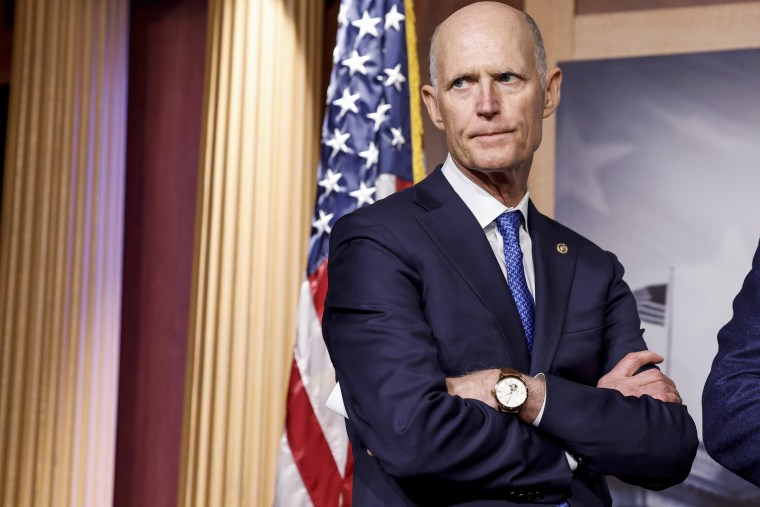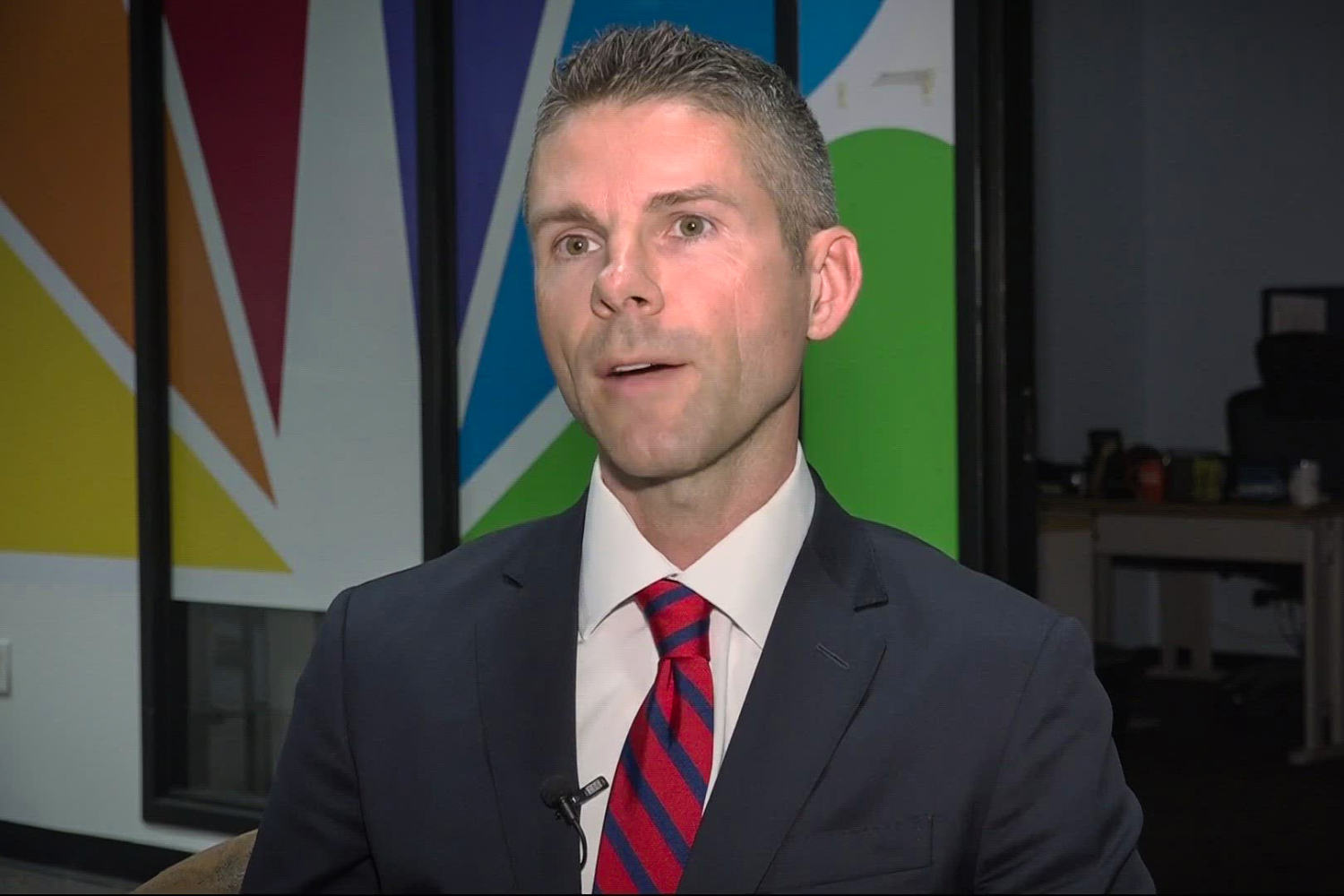TALLAHASSEE, Fla.— A Republican who has pledged to spend millions of dollars in personal funds to defeat Florida Sen. Rick Scott was once kicked off the ballot in Georgia after a judge became “troubled” about inconsistencies over his eligibility to run for a statehouse seat.
Keith Gross, an attorney and a businessman, has said he’s willing to spend up to $30 million to try and defeat Scott in the 2024 GOP primary. Already, he has spent nearly $850,000 in personal loans and contributions, according to recently posted campaign finance reports. Gross, 40, is his own largest donor, with his own contributions dwarfing the roughly $26,000 in outside money he has reported.
“When I look at my opponent’s last five years in the U.S. Senate, he has made a lot of good speeches, but he has not got a lot done,” Gross said this month in a speech to the Women’s Republican Club of Naples Federated in Naples, Fla., a city that counts Scott as one of its residents. A recording of the event was shared with NBC News by a Republican operative.
Gross — who did not responded to multiple requests seeking comment — was relatively unknown in Florida political circles until he jumped in to challenge Scott this spring and started boasting about his ability to self-fund his campaign, but he is not totally new to politics. NBC News also reached out to Gross’ lawyer multiple times and did not receive a response.
In 2008, at the age of 24, Gross ran as a Democrat for an Atlanta-area state legislative seat. That campaign was marred with allegations that he lied about his eligibility to run for the seat. A resident in the district filed a complaint in early 2007 challenging whether Gross lived in Georgia for two years or the House district for one year, as required in that state.
After hearings on the issue, an administrative law judge said he was “troubled” by Gross’ testimony and claims and ruled against him.

“The court…is troubled by the otherwise uncorroborated testimony of the respondent himself about his residency in the State of Georgia for the time period required by the Constitution of the State of Georgia,” wrote Georgia administrative law Judge Michael Malihi in the July 2008 decision. “In resolving the issues of Respondent’s residency, the court has considered Respondent’s manner of testifying, his intelligence, his means and opportunity of knowing the facts to which he testified, the nature of the facts to which he testified, the probability or improbability of his testimony, this interest or want of interest and his personal credibility.”
“The preponderance of the credible evidence is that Respondent did not establish the two-year residency requirement of GA,” the decision continued.
That decision was adopted by then-Republican Georgia Secretary of State Karen Handel, and Gross’ name was removed from the ballot.
Malihi’s 18-page ruling outlined a laundry list of discrepancies: Gross was “evasive and unable to specify” when he made Georgia his state of residence, and he testified that he had a Georgia drivers license in 2005 when he actually maintained a Florida driver’s license until May 2007 and certified during that time he was a Florida resident. Gross also said he did not know if he paid Georgia income tax in 2006, and he received mail at multiple Washington D.C. addresses in 2005 and 2006.
“Respondent, Keith Gross, is not qualified to be a candidate for House District 80 and his name shall be removed from the ballot,” the ruling concluded.
The judge also noted that Gross did not register to vote in Georgia until November 2007. Florida records show Gross last voted in the state in 2020, but there is no record of him being registered in the state since that time.
Gross is seen as an underdog running against Scott, a former two-term Florida governor who maintains significant support within the state GOP base.
Gross, however, has taken an aggressive early approach, hammering Scott for what he says is getting nothing done in the Senate, pointing to Iowa political ads Scott funded in early 2020 as evidence he wanted to use the seat to run for president and taking shots a Scott-authored 11-point plan to “Rescue America” that sparked an open feud with Senate Minority Leader Mitch McConnell.
“I don’t need an 11-point plan to save America,” Gross said during his Naples speech. “The one point we need to save America is to get Washington out of our lives.”
Source: | This article originally belongs to Nbcnews.com










